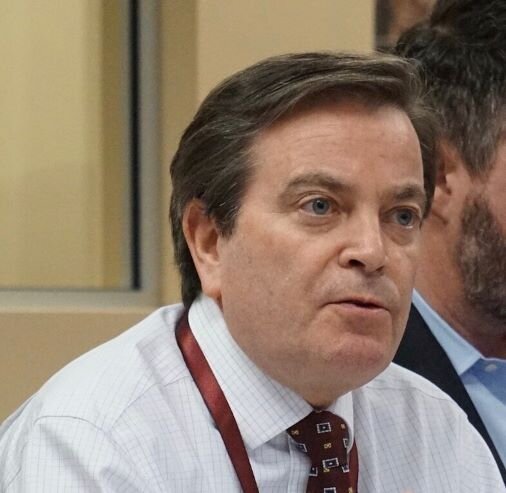New Relief Funding Welcome, But Forum Says Caregivers Still Undervalued
/By Gina Macris
In the last week, both Rhode Island and Massachusetts have taken steps to slow the exodus of workers from the community-based human service agencies the states depend on for critical mental health and social services.
The problem is that, through the federal-state Medicaid program, states set rates for human services workers in the private sector far below the salaries they pay state employees to do comparable work. The pay for private-sector human services jobs also lags behind he starting wages at major employers such as Amazon and Costco.
The two states are taking a variety of actions to raise pay and make the jobs more competitive, but a panel of human service executives from Connecticut, Massachusetts and Rhode Island says one-time infusions of cash do not address the core issue.
Massachusetts Governor Charles Baker is poised to sign a bill that passed both houses of the Massachusetts legislature last week giving $30 million in coronavirus relief funding to human service agencies to stabilize the workforce and provide college loan relief to workers.
In Rhode Island, the governor and the leadership of the House and Senate agreed Dec. 6 to use nearly $50 million in relief funds to re-open early intervention programs to new referrals and shore up staffing for agencies caring for children removed from their homes, child-care providers, and pediatric primary care medical practices.
The General Assembly also promised to tap $57.4 million in enhanced Medicaid reimbursements to support workers in home and community-based services, as long as the federal government approves that use for the money.
“It’s a step in the right direction,” said Tina Spears, executive director of the Community Provider Network of Rhode Island (CPNRI), of the announcement by Governor Dan McKee, House Speaker Joseph Shekarchi, and Senate President Dominick Ruggerio.
As she spoke, she was helping to lead a tri-state virtual public forum on the plight of nonprofit human service organizations – and how to stabilize them.
The forum described a regional slice of a national problem which threatens the quality of life essential to a thriving economy, the speakers agreed.
Community-based human service organizations, which provide a wide array of services, are the “connective tissue of the economy,” said Rhode Island Rep. Liana Cassar, speaking to more than 200 people in Connecticut, Massachusetts and Rhode Island who were listening or watching the two-hour presentation.
In the long run, one-time fixes, like coronavirus relief funds, will not address a system that has been long undervalued, Cassar said.
The pandemic did not create the problem, all agreed. Instead, it served as an accelerator.
Massachusetts State Senator Cindy Friedman said legislators were “blown away” by the statistics provided by non-profit human service agencies during State House testimony.
Massachusetts benchmarks the wages of employees in community-based human service organizations to a median of $16.79 an hour, said Michael Weekes, CEO of the Providers’ Council, a trade association of more than 220 community agencies that serve all types of people in need.
That median wage lags behind even starting wages at several large employers. Costco starts at $17 an hour and Amazon hires at a minimum of $18 an hour in Massachusetts, Weekes said.
“We just can’t compete,” he said. State employees in the human services make an average of $1,274 a week, but those in the private sector doing similar work get an average of $548 a week – a gap of more than 100 percent, Weekes said.
And whatever Connecticut and Massachusetts are paying for health and human services, Rhode Island is below that, said State Sen. Louis DiPalma. Rhode Islanders seeking better pay live within minutes of the Massachusetts and Connecticut borders, he said.
“We are treading water and taking on water,” said Spears, the director of CPNRI. The low salaries in human services have impacted the quality of life for a disproportionate number of minorities and women. They are essential workers, just like firefighters, police, and teachers, and should be treated that way, she said.
The consequences of the workforce shortage have become dire:
In Rhode Island, all nine early intervention programs for infants and toddlers with developmental delays were closed to new applicants programs at the end of November – a situation that is expected to soon be reversed soon with Governor Dan McKee’s release of $3.6 million in coronavirus relief funds from the CARES Act. That was part of the relief package announced Monday, Dec. 6.
In Connecticut, State Rep. Catherine Abercrombie said she had been hearing that a lack of mental health workers is an underlying issue in the three-day closure of one high school that had received threats of violence. Hamden High School, closed last Friday and again Monday and Tuesday. It reopened Wednesday with heighten security, and school officials planned to beef up mental health services, according to local news reports.
Diane Gould, CEO of Advocates, a large human services provider west of Boston, connected school violence and suicide risks to children’s mental health concerns.
The number of children who have attempted suicide increased “significantly” over the summer, she said. In August, her organization saw four children aged 11 to 17 who had tried to kill themselves.
“As many as 50 percent of the kids we’re seeing have aggression, suicidal thoughts, and anxiety,” she said, and there has been a 46 percent increase in calls to Advocates’ information and referral line since the pandemic struck in 2020, she said.
“There has been a terrible convergence of inadequate staffing with a dramatic increase in need,” she said.
Gould and other providers said they have been forced to create waiting lists for critically needed services or have stopped taking new cases.
In Rhode Island, service cuts for adults with developmental disabilities violate a 2014 civil rights consent decree that was supposed to bring them 40 hours a week of supported employment and individualized activities of their choice in their communities.
To keep staff from quitting, some providers described raises, signing bonuses, and other incentives they have given in the last few months – even though they are overspending their budgets.
“It’s a little nervous-making,” said Chris White, CEO of Road to Responsibility, provider of services to adults with developmental disabilities on the South Shore of Boston. “We’re doing this with one-time funds,” he said. “If there are Massachusetts legislators on this call, I hope you are hearing that. We are eating into our reserves.”
Abercrombie, the Connecticut legislator, said “this is a crisis.” The state still has $300 million in coronavirus relief funds to allocate, “and I’m glad we do,” she said.
The non-profit human service sector is a “vital business,” said Cassar of Rhode Island. “Our families depend on it and our economies depend on it,” she said.
“When people say, ’We need to bring well-paying jobs to Rhode Island,” they should be told, ‘We have jobs in Rhode Island. We need to make them well-paying,’” she said.
State senators DiPalma in Rhode Island and Friedman in Massachusetts have sponsored bills to permanently raise the pay of caregivers in the non-profit sector. Friedman’s bill would link salaries to the amount Massachusetts pays state employees for similar work, with a phase-in period of five years.
DiPalma has introduced a bill for several years that would fix minimum pay at at 55 percent above the state’s minimum wage, although he says he considers it a “work in progress.” DiPalma plans to re-introduce a revised measure in January.
Rhode Island will have a court-ordered review of the rates paid to private providers of developmental disability services, many of whom are members of Spears’ organization, CPNRI. A federal judge has ruled that without such a rate review, Rhode Island’s developmental disability system cannot fund the changes necessary to comply with the 2014 consent decree.
But that review will not affect other segments of the non-profit human services.
DiPalma said, “When we, the legislators, value the profession of the front-line workers, we will address the issue. Anything else will be a band-aid.”
DiPalma, the first vice president of Rhode Island’s Senate Finance Committee, acknowledged that solving the crisis is “categorically in the hands of the legislature.”
He said that every day, citizens should be asking their legislators what they are doing for the public. he said.
Meanwhile, Monday’s announcement by McKee, Shekarchi and Ruggerio signals the release of significant coronavirus relief funding in the short term:
• $38.5 million for children, families and social supports; $32 million to small business; $29 million to housing; and $13 million to tourism and hospitality industries; all from a total of $113 million in what McKee calls his “Rhode Island Rebounds” plan, funded by the American Rescue Plan Act (ARPA).
• $57.4 million from the enhanced federal Medicaid match, which community-based agencies may use to shore up their workforce through hiring bonuses, raising pay and benefits, shift differentials, and other incentives
The three leaders also announced funding to supplement the human services portion of McKee’s “Rhode Island Rebounds” plan:
• $ 6 million for childcare providers, on top of the $13 million in the original plan. Ruggerio, the Senate president, said, “Childcare is a top priority. We can’t get people back to work if they can’t get childcare.”
• $3.64 million from unspent CARES Act funding for early intervention, in addition to the $5.5 million McKee originally put in Rhode Island Rebounds.
The House Finance Committee is expected to vote next week on the funding. The unusual display of unity among the executive and legislative leadership of state government Monday signals swift passage of the funding measures. (McKee does not need legislative approval to release CARES Act funding.)
Rhode Island is the only New England State that has not spent any ARPA funds, and critics have put increasing pressure on the General Assembly in recent weeks to take action on McKee’s proposal, especially after the start of a waiting list for early intervention services last week.
View the entire public forum on YouTube: https://www.youtube.com/watch?v=PLS18en74A8





























